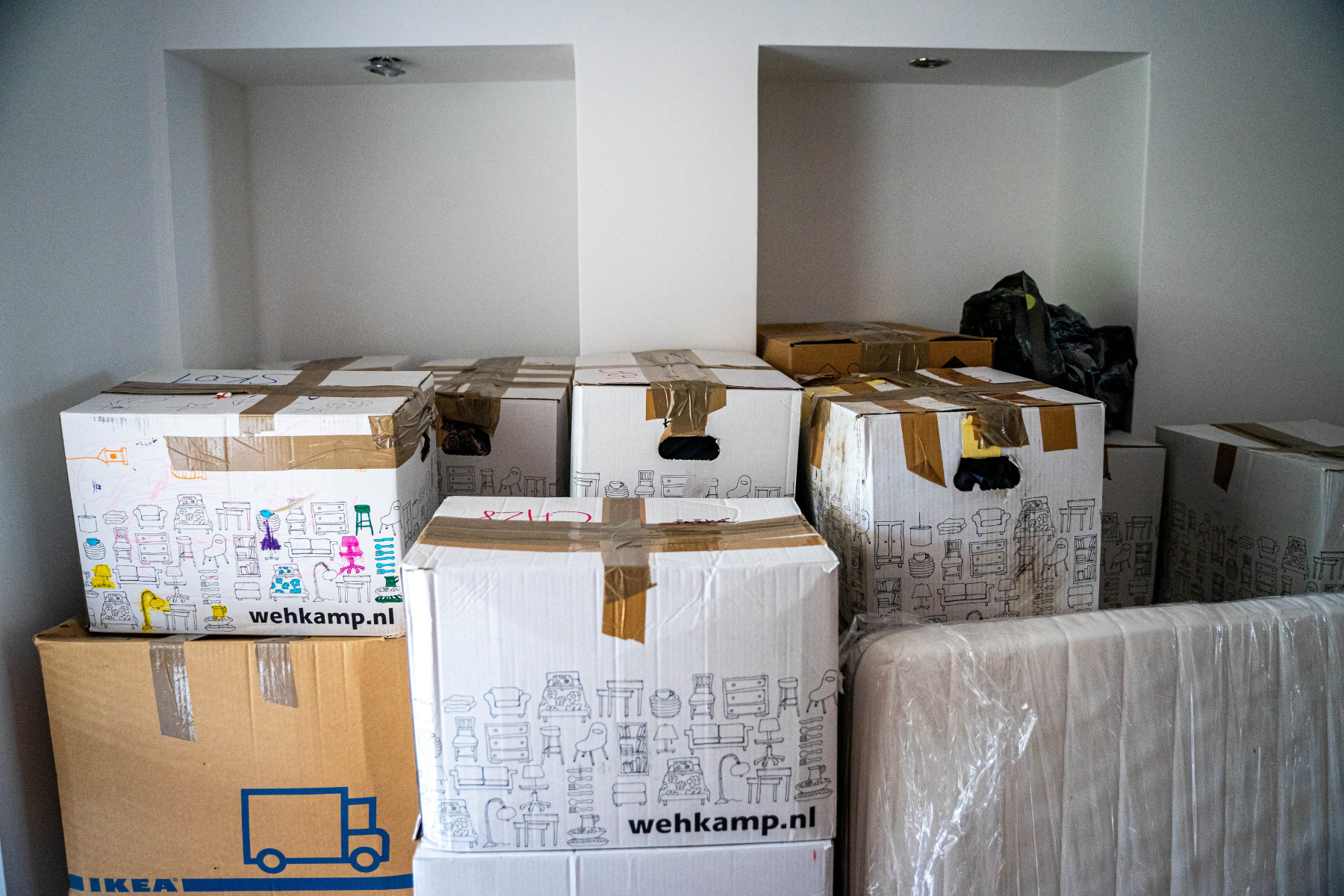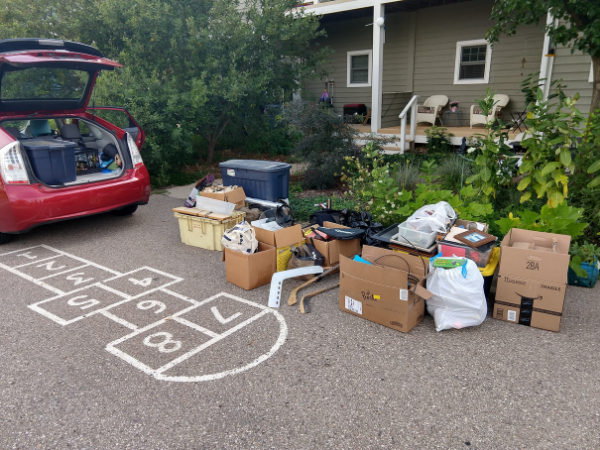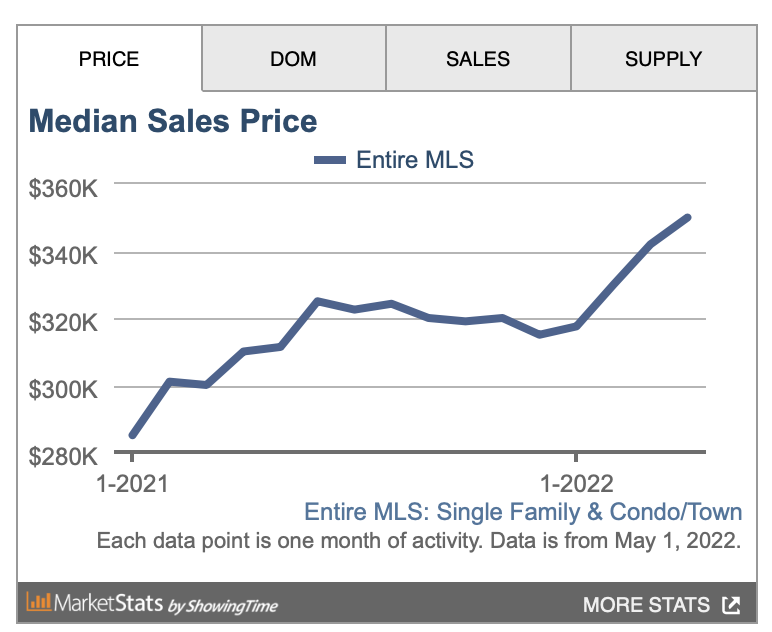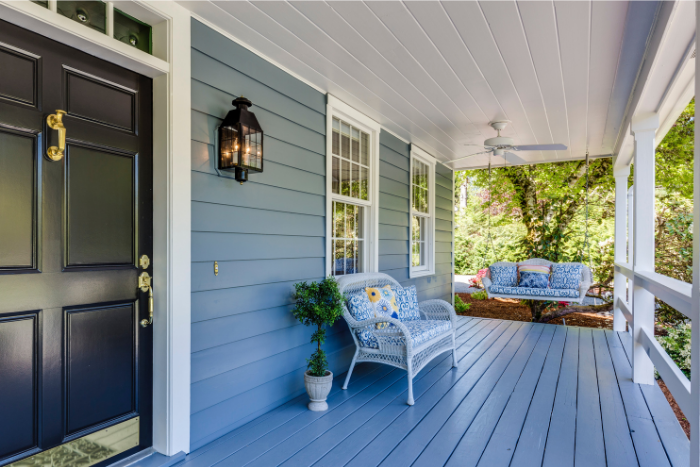Home Tips
The latest, greatest organizing tips, home maintenance checklists, and other “good to know” things about your home are all here.

Whether or not you're thinking of selling your house this Spring, this Fall, or Winter - or you just want to freshen up - I've got the Top 10 updates you can do while you're stuck in the house & it's cold outside. Want more tips? Reach out, I'd love to talk. Find me on Instagram @Cindybennettrealestate
Read more
In my latest Real Talk with Cindy, I sit down with Josh Crowley at Liberty Mortgage. We discuss mortgage options in today's changing market, pre-approvals, seller concessions, and first-time buyer tips. It's a conversation you don't want to miss. Have more questions? We'd love to help. Reach out to me on Instagram @cindybenettrealestate or via my website at cindybennett.net or Josh at Liberty Mortgage at 757-784-7269.
Read more
My favorite *home* items right now (that just might help you with those resolutions)... Sleep better- Linen sheets from OneQuince.com. I seriously sound like a commercial for these sheets, I love them so much. The perfect weight, soft without feeling heavy, breathable, but warm...I'm convinced they're perfect. Oh, and the price is great for the material and the quality, too. I swear I sleep better since I've had these, and that's definitely worth it! Save money- Ecobee thermostat. The ability to set this thermometer to your patterns is fantastic, and the ease with which you can change, from home or away (with the app) is fantastic. Set your perfect sleep temp, "at home" temp, and have it drop when you're away. The bonus? You'll save money, and you can get credits/rebates from Dominion Power! Be more environmentally conscious- BagUps. These garbage bags (yes, garbage bags are on my favorite things list!) are not only a small start up, but the company is veteran owned, AND, best of all, these bags are totally biodegradable. Additionally, the box is sort of like tissues, so the back up bags are always there for you. There's plenty we have to throw away, but I love that the bags, and therefore, much of the contents, break down over time. Get organized- This eyeglass organizer was a game changer for me. A person of a certain age, I use reading glasses. I don't like wearing the same ones all the time, and I had them everywhere. This corrals them all in one place- keeps them from getting scuffed, getting lost, and obviously, from the clutches of my little dog. Great for sunglasses too, perfect for your walk in closet, and good looking enough for your dresser! (and under $30!)
Read more
As you might have heard, we are in a shifting market. Rates are higher, and the economy is a little more questionable. Let's talk about pricing your home in this adjusting market and what you need to keep in mind. If you have more questions, I'd love to answer them. Reach out to me on Instagram at @cindybennettrealestate or via my website at cindybennett.net
Read more
Home Sweet Home The movers are gone, and you’re surrounded by boxes. Overwhelmed? Now what? To get settled in as quickly and as possible, Mary suggests you start with the areas that will allow you to get back into your daily routines - the kitchen, primary bedroom(s) and bathroom(s), and if you work from home, your office. By getting the spaces unpacked and organized first, you’ll be able to quit the take-out meals and get ready for your day without digging through boxes. Unpack methodically - emptying each box and staging items in their new home before moving on to the next box. If you haven’t already, think about your space and how you’ll live in it. Keep your most used items in the spaces that are easiest to access, and keep things near the area you’ll use them. For instance, keep dishes near the dishwasher, and the cosmetics and skincare you use daily in the top drawer of your vanity. Once you’ve got those primary spaces unpacked, start in other spaces you’ll use regularly. We know as well as anyone how tempting it is to head over to The Container Store or Target to buy all of the fun things to get your new home organized. Don’t…yet. It’s important to know what you’ve got and where it belongs BEFORE you buy bins and baskets. As you unpack, stage items in the spaces you’ve designated and see if it makes sense for how you live in your new home. Don’t worry if you need to make adjustments. Figuring out what works best for you and your new space is part of the process. It’s okay to adjust until it’s most functional for how you live. Then, before shopping, measure your cabinets, shelves, and drawers to make sure the new bins/baskets/dividers will fit. It can be hard to get unpacked when you can’t take a hiatus from regular life. Other responsibilities can make it hard to get all of the boxes unpacked. Try to keep unpacking at the top of your priority list until all of the unpacking is done so that you don’t end up shoving boxes in a guest room closet to find them months (or more) later. If it feels impossible to get it all done, consider investing in a professional organizing service to help you get moved in. This can drastically reduce the time it takes to get back to “normal” life. (Organizers can help you through the entire move process - decluttering, packing, and unpacking - and has the tools to help you determine the most functional systems for your new home.) I (Cindy) highly recommend In Good Order to help you get both packed up and unpacked at your new place. Trust me. Especially when you are organizing a brand new (or new to you) space, having a pro there to help you manage, both mentally and physically, can make a huge difference in how you organize your home, and ultimately, how you live in and enjoy it. Do you have more questions about moving? We’ve got you covered!
Read more
You’ve signed a contract on a new home and now you’re moving. Which means packing. And finding a mover. And arranging furniture. And unpacking. And finding places for ALL of the things. And. And. And… One of the best ways to ensure a smooth move is to plan. Think about how you will live in your new house. Will you use the front door or the back door - and where will shoes end up once you’ve come in? Where is the most practical place for your vacuum, spare batteries, and wrapping paper? Plan what will go in each closet and cabinet. If you know where things will go and pack accordingly, you won’t stress about those decisions as you’re trying to unpack. Before you start packing, think about what you shouldn’t pack. You’ll want to have some necessities on hand, such as a change of clothes and toiletries, toilet paper, and paper towels to tide you over until the movers are gone and you’re able to unpack. We also suggest moving items yourself that can’t be easily replaced, like medications and your vital documents. You’ll also need packing supplies. We suggest: Moving boxes - try Go Green moving boxes. They’re around the same price as cardboard boxes, and there’s no taping. You’re also not left with a giant stack of boxes to break down and get rid of Wardrobe boxes or large heavy-duty shopping bags for hanging clothes Packing paper and bubble wrap Labels and Markers Hopefully, you read our first post in this series and started purging before your house ever hit the market. But let’s be honest, you can still probably let some things go. Why is it so important to purge before you move? Packing is no fun, so why spend time (and money on supplies) packing items you don’t want or need? You will be paying a moving company to move items you won’t use (or doing it yourself). It will take you longer to unpack, and therefore longer to get settled into your new home. So as you’re packing, ask yourself those same questions - do I need, use, or love it? - and if the answers are no, no, and no, let it go. Pack each box by the type of item(s) and what room it will go to in the new house. Use soft items like towels or linens to line the bottoms of boxes with breakables. Wrap breakable items generously and don’t overstuff boxes. Label each box clearly by room (and which floor if it's a multi-level home) and list the types of items in the box. Group boxes by floor and room. This should make it more efficient for the movers to unload boxes and get them to their appropriate rooms. Does all of this make you want to stay where you are? Hire a professional organizer who offers move services to do the packing and unpacking for you.
Read more
Time to move!So the moment has come, and you’re ready to move! If you have a home to sell first, getting that organized is the very first step. Hopefully, if you’ve followed some of the guidance in our first Moving Month post, you don’t have a HUGE task ahead of you. The “get ready to sell” info changes slightly based on whether you are staying in the home or moving out and having it staged to sell. If your plan is to stay in the home when you sell, here are some good tips for getting things in order so prospective buyers focus on your house, and not your stuff. Not an exhaustive list, but a good start! Thin out the closets! Are there things on the floor? Piled on shelves? Out of season clothes? Packing those things up is a great way to give a little breathing room to your storage space. (Make sure you’re only packing the things you want to keep!) Do you have collections out for display? Pack those up too. Nothing distracts a buyer’s eye like a lot of any one thing. Bonus to this is you’re sure if your collection is breakable or valuable, you know they won’t accidentally get bumped or broken. Another “eye distraction” for potential buyers? Family photos. You’ve definitely heard this before, but it’s because it’s true. De-personalizing your home, including packing up those family pics, will help those potential buyers visualize themselves there instead of perusing the pics of your Grand Canyon adventure. Extra toys piled up in the playroom? Pack those up too. (Get the kids’ buy-in on this, and it will go a lot smoother!) You may even find that once they’re packed up, they don’t miss them…(Added bonus!) Take a couple of hours and get all the old, extra toiletries and medicines from the bathrooms. Before showings, have a good place to stash meds, vitamins, razors, toothbrushes, etc. You want people to visualize themselves there. Not you. Before showings, clear your surfaces, as much as you can. (Even your furniture- it gives less for the potential buyers to be distracted by.)Have the things you use handy, but out of the way if possible. Stow anything that’s smaller than a cantaloupe. Yes, that sounds weird, but for photos and people walking through, it’s a good guideline. Clean, clean, clean!! (Don’t forget the windows!) Once you’ve gotten everything decluttered, cleaned, and ready, here are a few MORE things you’ll want to include, to really be ready for showings… Fresh mulch in all those flowerbeds. (Don’t forget to pick up sticks, clear old leaves, etc, and mow!) Invest in some crisp white towels, and put those in your bathrooms for no one to use. Head to Lowe’s and pick up a couple of colorful plants/flowers in pots for your entry and a fresh new doormat. You are ready!For a more comprehensive list of pre-listing “to do’s” reach out to me, and I’ll email you one! Better yet, let's chat, and I'm happy to come give you a customized assessment of how to get your home ready for sale to get top dollar. Happy Moving!
Read more
So, how did the market look in April? Well, the news may be saying there is a national slow down, but it doesn't seem to have reached us quite yet. Here's the breakdown by the numbers. Average Sales Price in the month of April was $412,850. That's up by 13.2% from last April, and it's still trending upward. (Yes, that means good news for sellers, but buyers in most price ranges are still engaging in bidding wars on most properties.) New Listings were actually down in April, by 25.3%,. but part of that can easily be accounted for by Easter/Passover holidays and spring breaks. Most people don't list during spring break weeks, so that is always to be expected. Closed Sales where also down (likely in part, at least, for the same reason) by just over 12% from last year. Average Days on Market seems to just keep going down! The average in April was 14 days, but keep in mind, that is indeed the average. Much higher than the median, which is only 6. Frankly, 6 is a high number, as most listings go on for 4-5 days, with a deadline for reviewing offers, so if they had no deadline, that number would certainly be lower. The average percentage of list price to sales price is up by just over 3% from last year, clocking in at 107.4% for the month of April. What does all of this mean? Well, at the risk of repeating the same refrain you hear all the time, it really is a great time to be a seller. That still means you have to price your home well, and do all the things to show it off in the best light. BUT, if you follow that course, there is a strong likelihood that you will indeed get multiple offers, with contingencies waived and more money than the listing price. If you're buying, well...things are tough out there, I'm not going to lie. But, having a plan, a preapproval, and most of all, a strategy, can get you in a great home to be enjoying by the time summer is truly here. With rates ticking up, we are likely to see a bit less competition in some higher price ranges, and many people are adjusting their price ranges and budgets to account for the increase. If you are thinking of buying or selling, or just wondering if it's the right time for you, reach out. I'd love to help.
Read more
Let’s face it. Moving stinks. We never realize how much stuff we have until we go to move it, and it’s nearly always a bigger job than we think it is. While I always walk through and give my seller clients a list of things to do to maximize their sales price, there is so much you can get started on months before you move, that will make it exponentially easier when the time comes to actually put your home on the market. Since you may be months, or even years, away, from moving, you’re not really focusing on the buyers and their opinion yet. Right now, focus on what you’ve been putting off. (I guarantee you there is something, and it’s usually the attic or the garage.) The only thing less fun than doing some of this purging and organizing is doing it when you’re on a deadline to get your home on the market. My recommendation? Start with one area at a time. You’re ahead of the game, remember> That means you can allot two hours every Saturday (or whatever is comfortable for you and works with your schedule). Why do you need to purge and organize these deep recesses of your home? Who even looks at those things anyway? There are a few reasons, actually. First of all, you probably don’t want to pack and move things that you don’t want to keep, so it just makes sense to go through it periodically. Second, especially if you’re downsizing, you’ll want to know what you DO want to keep so you know how much storage space is at your new home. Third, if you’ve been in your home for a while, there are probably lots of things in closets, pantries, garage, and attic that you’ve totally forgotten about. Thinning all that down will help the potential buyers (even if they’re a few months away) see themselves, and their “stuff” in the space. So where to begin? You’ll need to - literally - decide where to begin. Attic? Basement? A hall closet whose contents haven’t seen the light of day in years? It’s okay to start small. One shelf or one corner of the attic is still progress. Have boxes on hand for items you want to donate. You’ll also make piles for keep, recycle, and trash. As you’re editing, be brutally honest with yourself. If you have boxes that haven’t been opened since your last move, you probably don’t need those items anymore. As yourself these questions as you decide what to keep: Do I use it? Do I need it? Do I love it? If you don’t answer yes to at least one of these, let it go. Remember, every item you keep will have to be packed, moved, unpacked, and require space in your new home. When you’re done with your purging for the day, make sure you get the items you aren’t keeping out of the house! Leaving boxes of donations sitting around only gives you an opportunity to second guess yourself and undo all of your hard work and decision-making. Plus, you’ll be one step closer to having a home ready to put on the market! Do you need to get started but don't know where to begin? Hiring a professional organizer is a great place to start! Mary Davis from In Good Order is a fantastic resource, and has helped me tremendously. She can help you both make a plan and help you execute it. (She can also keep you from going down memory lane with everything you're trying to purge!) Tune in every Monday in May as Mary and I team up to work through the whole process of moving! Get more info on Mary HERE.
Read more
Spring has sprung, and that means outdoors, gardening, and making sure your curb appeal is on point. Whether you've lived in your home a while and just want a refresh, have a new home that you want to "make yours," or you're getting ready to sell and need to give the exterior a little makeover, it is definitely curb appeal season. Here are 5 easy (and inexpensive) ways to boost that curb appeal, regardless of your reason. Clean up your yard. (Yep, just like you clean your house!). Get those old leaves and sticks up and out of the way. Obviously, adding a little color in the form of some flowers (even potted ones at the entry or at the sidewalk) makes a difference. Fresh mulch. I cannot stress the importance of this more! It's like new carpet for your yard? Big plants? Mulch them. Small plants? Mulch them. No plants? Yep. Mulch makes even those empty beds look better. Pro tip- the darker the better. It always looks fresh. Give that front door a makeover! A fresh coat of paint in a great color (or even a shiny black) goes a long way towards freshening up the curb appeal of your home in any season. New lighting. Don't underestimate the difference a little new lighting can make. Low voltage or solar landscape lights, a new lamp post, or more on trend sconces at the doorway. Trust me, even if you have to have an electrician come to do the install, these updates have a great ROI. Roll out the welcome mat! Add a fresh, new doormat and make sure you clean any cobwebs and touch up trim paint if necessary. Are you thinking of doing a little curb appeal overhaul? What's your first step?
Read more


